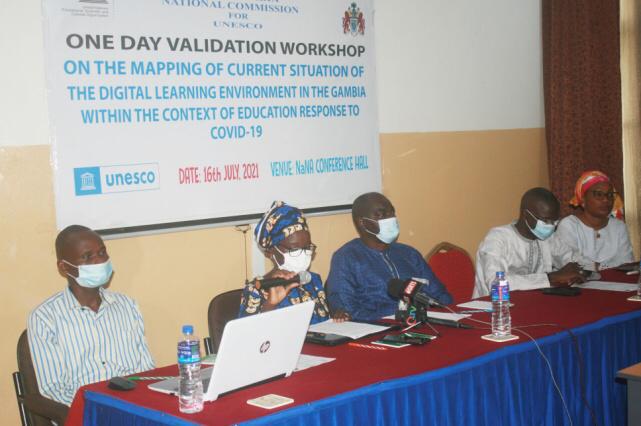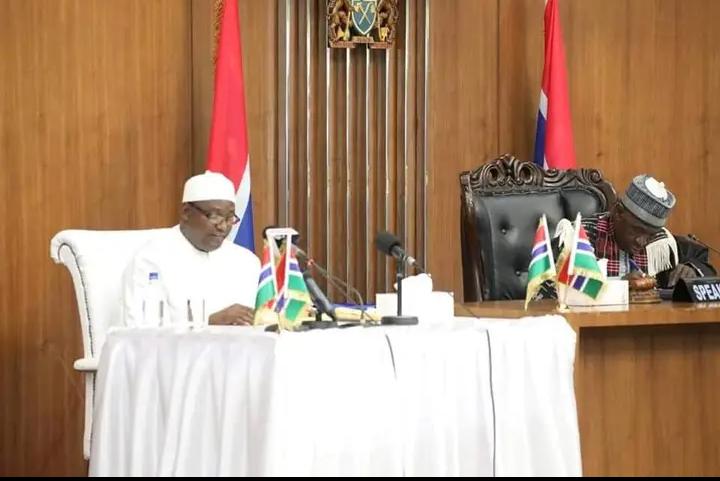The Gambia National Commission for UNESCO and other stakeholders recently validated the ‘Mapping of Current Situation of the Digital Learning Environment in The Gambia within the Context of Education Response to Covid-19.
The validation forum, sponsored by Unesco, was held at the NaNA Conference Hall, Bakau and it brought together stakeholders who deliberated on the draft report before the validation.
In his opening remarks, Momodou Jeng, director of Curriculum Research Evaluation Directorate (CREDD), highlighted some of the MoBSE interventions regarding the use of technology in Gambia’s education system.
“We have made commitment to use technology to complement the face-to-face traditional teaching and learning in The Gambia and since this commitment, we have had series of initiatives, as they started piloting the use of technology in some cluster areas in 2009 and we also established six hubs in the regional offices meant for promoting the distance and blended learning,” he said, while listing some of them.
He added that among others are the uses of tablets for the development of early literacy and numeracy in 2014/2015, use of technology to promote the development of science and mathematics in UBS and SSS in 2012 and the expansion in 2013. English language is now added, while they are now exploring the use of artificial intelligence to track real data on learning.
Speaking on behalf of the Unesco-Natcom Secretary General, Ms Maimuna Sidibeh, Principal Program Officer at Unesco-Natcom explained that the study is a mapping of existing learning platforms at national levels which are meant to identify stakeholders to be engaged in digital education teaching and learning activities during Covid-19 and beyond.
According to her, the study adopted both qualitative and quantitative methods and the survey gathered primary data from targeted respondents while the key informant interviews and stakeholder consultations attempted to solicit the views of other key stakeholders and partners.
She also noted that there have been numerous initiatives, processes and practices with features of distance education and remote learning in the education sector, thus helping the country build education resilience and strengthening its capacity to adapt digital learning in emergencies.
By Dawda Baldeh






Leave A Comment